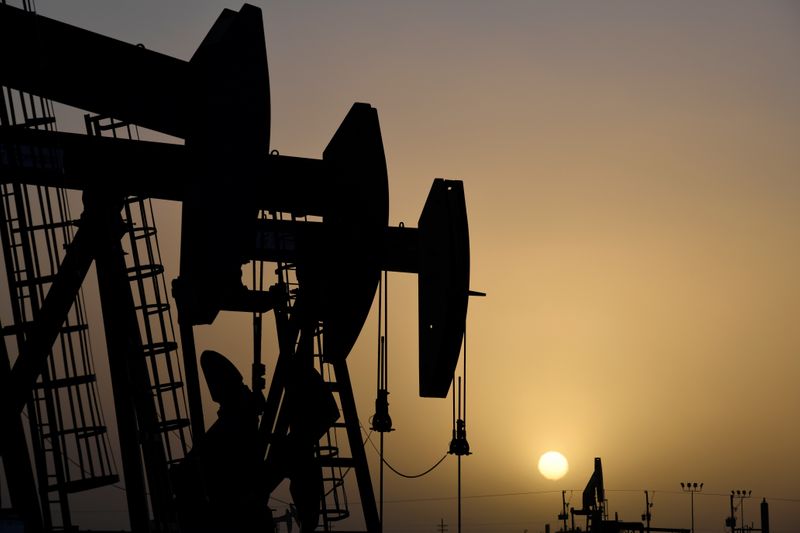By Yuka Obayashi
TOKYO (Reuters) - Oil prices fell on Friday, pressured by fears about a slow recovery in the global economy and fuel demand due to rising COVID-19 infections, but the market remained on track for a second straight weekly gain, helped by hopes for a vaccine.
Brent crude (LCOc1) was down 51 cents, or 1.2%, at $43.02 a barrel as of 0741 GMT, after dropping 0.6% on Thursday. U.S. West Texas Intermediate (WTI) crude futures (CLc1) fell 66 cents, or 1.6%, to $40.46 a barrel, having lost 0.8% on Thursday.
For the week, both were headed for a surge of about 9%.
U.S. government data also added pressure, as crude inventories rose by 4.3 million barrels last week, compared with an expected fall of 913,000 barrels. [EIA/S]
"Investors took profits from the recent rally as a gloomy global economic outlook dampened sentiment amid a sharp increase in coronavirus cases and new social restrictions," said Koichi Murakami, an analyst at Daiichi Commodities Co Ltd.
"Oil prices are expected to stay under pressure next week if the spread of the pandemic continues to accelerate in many parts of the world," he said.
New coronavirus infections in the United States and elsewhere are at record levels and tightening restrictions to contain the spread have dampened the prospect of a near-term end to the global health crisis.
Hopes that a resolution might be on the horizon have risen - stoking this week's jump in both WTI and Brent contracts - after data showed an experimental COVID-19 vaccine being developed by Pfizer Inc (N:PFE) and Germany's BioNTech (DE:22UAy) was 90% effective.
The International Energy Agency (IEA), however, said on Thursday that global oil demand is unlikely to get a significant boost from any roll-out of COVID-19 vaccines until well into 2021.
"Views that it would take time to see any benefit from a COVID-19 vaccine prompted investors to unwind their long positions," said Kazuhiko Saito, chief analyst at commodities broker Fujitomi Co.
Chart analysis suggests WTI is headed toward $39.50 a barrel, he added.
Analysts say tougher restrictions on mobility to deal with sky-rocketing coronavirus cases mean the Organization of the Petroleum Exporting Countries (OPEC) and its allies, known as OPEC+, may hesitate to implement a planned loosening of output curbs agreed in a deal earlier this year.

"The market has largely discounted a likely delay in tapering of cuts," Fujitomi's Saito said.